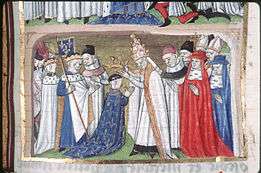781
This article is about the year 781. For other uses, see 781 (disambiguation).
| Millennium: | 1st millennium |
|---|---|
| Centuries: | 7th century · 8th century · 9th century |
| Decades: | 750s · 760s · 770s · 780s · 790s · 800s · 810s |
| Years: | 778 · 779 · 780 · 781 · 782 · 783 · 784 |
| 781 by topic | |
| Politics | |
| State leaders – Sovereign states | |
| Birth and death categories | |
| Births – Deaths | |
| Establishment and disestablishment categories | |
| Establishments – Disestablishments | |
| Gregorian calendar | 781 DCCLXXXI |
| Ab urbe condita | 1534 |
| Armenian calendar | 230 ԹՎ ՄԼ |
| Assyrian calendar | 5531 |
| Bengali calendar | 188 |
| Berber calendar | 1731 |
| Buddhist calendar | 1325 |
| Burmese calendar | 143 |
| Byzantine calendar | 6289–6290 |
| Chinese calendar | 庚申年 (Metal Monkey) 3477 or 3417 — to — 辛酉年 (Metal Rooster) 3478 or 3418 |
| Coptic calendar | 497–498 |
| Discordian calendar | 1947 |
| Ethiopian calendar | 773–774 |
| Hebrew calendar | 4541–4542 |
| Hindu calendars | |
| - Vikram Samvat | 837–838 |
| - Shaka Samvat | 702–703 |
| - Kali Yuga | 3881–3882 |
| Holocene calendar | 10781 |
| Iranian calendar | 159–160 |
| Islamic calendar | 164–165 |
| Japanese calendar | Hōki 12 / Ten'ō 1 (天応元年) |
| Javanese calendar | 676–677 |
| Julian calendar | 781 DCCLXXXI |
| Korean calendar | 3114 |
| Minguo calendar | 1131 before ROC 民前1131年 |
| Nanakshahi calendar | −687 |
| Seleucid era | 1092/1093 AG |
| Thai solar calendar | 1323–1324 |
| Wikimedia Commons has media related to 781. |

Year 781 (DCCLXXXI) was a common year starting on Monday (link will display the full calendar) of the Julian calendar. The denomination 781 for this year has been used since the early medieval period, when the Anno Domini calendar era became the prevalent method in Europe for naming years.
Events
By place
Europe
- King Charlemagne has his son Carloman (renamed Pepin) anointed "king of Italy" and is crowned by pope Adrian I with the Iron Crown of Lombardy. His younger brothers Charles I are anointed king of Aquitaine and Louis the Pious (only 3-years old) is appointed sub-king of Italy and Aquitaine.[1]
- Charlemagne meets Alcuin, Anglo-Saxon missionary, in Italy and invites him to Aachen, where he becomes Charlemagne's chief adviser on religious and educational matters (approximate date).
Asia
- Yang Yan, Chinese statesman, commits suicide after being accused of bribery and corruption. He is credited with reforming the tax system for peasants, reducing the power of the aristocratic classes, and eliminating their tax-free estates.
- April 30 – Emperor Kōnin of Japan abdicates the throne after a 11-year reign in favor of his half-Korean son, Kanmu.
- July 31 – The oldest recorded eruption of Mount Fuji (Traditional Japanese date: July 6, 781).
- New city of Bian (汴) is constructed on the site of Kaifeng during the Tang Dynasty (China).
By topic
Religion
- Charlemagne defines the Papal territory (see Papal States). He codifies the regions over which the pope would be temporal sovereign: the Duchy of Rome is expanded by Ravenna, the Duchy of the Pentapolis, parts of the Duchy of Benevento, Tuscany, Corsica and Lombardy.
- Nestorians in China build Christian monasteries and erect the Nestorian Stele (approximate date).
Births
- Harith al-Muhasibi, founder of the Baghdad School of Islamic philosophy, and a teacher of the Sufi masters Junayd al-Baghdadi and Sari al-Saqti. (d. 857)
Deaths
- Alchmund, bishop of Hexham (approximate date)
- Fergus mac Echdach, king of Dál Riata (Scotland)
- Guo Ziyi, general of the Tang Dynasty (b. 697)
- Isonokami no Yakatsugu, Japanese nobleman (b. 723)
- Yang Yan, chancellor of the Tang Dynasty (b. 727)
References
- ↑ Matthias Becher (2003). Charlemagne. Yale University Press. pp. 127–. ISBN 978-0-300-10758-6.
This article is issued from Wikipedia - version of the 10/21/2016. The text is available under the Creative Commons Attribution/Share Alike but additional terms may apply for the media files.